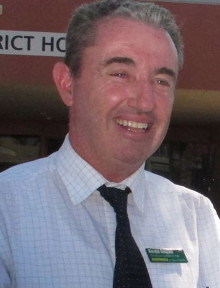
Key Performance Indicators
Matt Gilchrist of Healthy Business for Doctors outlines the Key Performance Indicators for the modern general practice.
KPIs are things that your accountant probably speaks about. KPI stands for Key Performance Indicator. The following is a list of KPIs that are useful in a General Practice setting.
KPIs for Doctors
One of the large corporates refers to their doctors (to their face) as IGUs or Income Generating Units. Needless to say that this company takes their KPIs pretty seriously and they make significant amounts of money doing that. My list of KPIs for doctors includes:-
- Number of results in inbox – This is the number of results that remain unchecked. I see many doctors who keep results in their ‘Inbox’ because they are waiting for more information or are trying to decide how to manage the patient. The problem with this is the rest of the practice does not know what is happening and are unable to assist the patient.
-
- Details
- Written by: Matt Gilchrist

Health coaching - Getting the ‘choice point’ right
Consider these facts:
- 65% of people in developed countries are overweight.
- The ability to retain fat makes us the evolutionary winners… if a famine were to occur we would be the grinners crossing the finish line of staying alive.
- Just this morning in the supermarket we observed eight jam-packed aisles of packaged food and one lone section of “fresh” food items.
What is available to us in Australia is unprecedented – the choice is enormous. And choice is what this article is all about.
Recently, we have both started to exercise more with the help of a personal trainer. Gyms haven’t worked for us - they do, however, seem to work well for gyms, which in the past have taken our hard earned cash and then only had to deliver a handful of classes, long before a habit can begin. As does low-carbs-high-protein or paleo or just raw food or whatever eating plan is the recommended one of the day.
- Details
- Written by: by Sharon-Marie Hall and Jodi Jamieson
Read more: Health coaching - Getting the ‘choice point’ right

Hepatitis B and C Management
Northern Rivers GPs interested in becoming a a Community s100 Prescriber in HBV or HCV can undertake further training through the Australasian Society for HIV Medicine courses in May and June.
The courses are free to NSW general practitioners and run over one or two days in Sydney on a week-end. Accommodation and meals are supplied as part of the package.
- Details
- Written by: Staff

Order in the House - April 2015
This month I announced the great news that North Coast Medicare Local has been appointed to run the Primary Health Network on the North Coast.
There had been concern that our Primary Health Network may be run by an organisation from outside the area. When our local health professionals spoke to me about this I lobbied the Minister to make sure our PHN was run locally. I would like to thank those who took the time to raise the issue with me. Primary Health Networks – or PHNs - are part of the Government’s plans to improve the health of the nation and will replace Medicare Locals from July 1.
The PHNs will work directly with GPs, other primary health care providers, secondary care providers, hospitals and the broader community to ensure improved outcomes for patients.
*******
- Details
- Written by: Kevin Hogan, Federal Member for Page

How long to anti-coagulate?
The Lismore Base Hospital Haematology Department is seeking patients from Northern Rivers general practitioners for a new trial to help determine the optimal length of time for anti-coagulation after deep venous thrombosis (DVT) or pulmonary embolism (PE).
The "Einstein Extension" trial will be comparing Rivaroxaban 20 mgs versus Rivaroxaban 10 mgs versus Aspirin for 12 months for the secondary prevention of patients with a venous thromboembolic event who have received 6 months of anticoagulation therapy
- Details
- Written by: David Guest
Page 160 of 177















